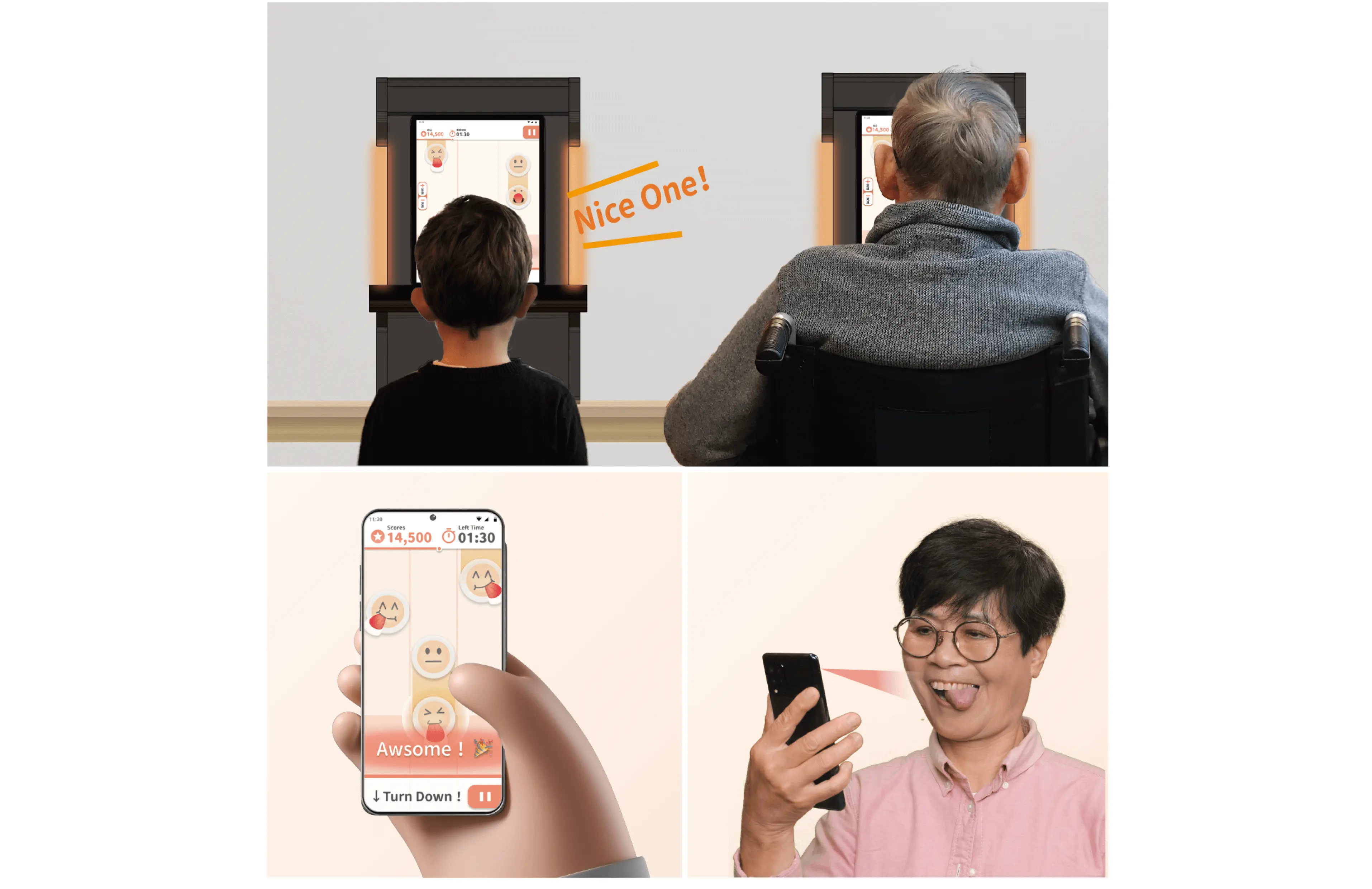

How to get middle-aged and older adults from 45 - 75 to be willing to do oral training to slow down the decline of mouth function?
In collaboration with experts and older adults, we designed MusicTongue, an oral training game to improve the flexibility and coordination.
Project Management, UX Research, UI Design, Prototyping
CHIA-HSU HAUNG, CHUN-JUNG LAI, TSAI-HSIEN SHAO, CHEN-CHUN PENG
2020.09 - 2022.02
🏅2022 CHI-Presentation
🏅2022 IxDA Award - Top 3 Finalist
🏅2021-2022 Stanford Center on Longevity Design Challenge Asia - Grand Prize
🏅2021 World Usability Day Design Changlle- Silver Prize
MusicTongue is a Tongue-Training game designed for older adults. With image-recognition technology. The player can do tongue training on the smartphone, and the game can detect tongue posture with the front-facing camera. Just like other music games, the player can do exercise with their Favorite music beats. Making the process fun and entertaining.
20% of older adults over 60 have swallowing difficulty(dysphasia), and the percentage is even higher in long-term care facilities, reaching about 71%. Not only is the ability to eat and speak less well, but it may also cause aspiration pneumonia and other risks, reducing the life quality of older adults. The deterioration process is slow. Most older adults won’t notice until they got other serious problems like stroke or brain injury. Dysphasia will become quite serious, making patients frustrated, and Oral training takes a long time to effect, making patients easily give up training.
We went on a year-long design journey with experts and older adults. Medical Exert shares the problem in the Existing Training process and design training action used in the game. With the participation of over 40 older adults, we run on four phrase iterations, design the game theme and optimize the game UX from wireframe to the real app.
MusicTongue can generate a game level with any music for more than 3 minutes. After the player chooses a song, the beats-detect model can pair the beats with the training action. Then, the player can follow the icon and beats to do training.
To meet the needs of older adults who live in long-term care facilities or are not familiar with smartphones, we offer a nostalgic arcade version MusicTongue, which is more suitable for use in public places.
To meet the needs of nursing home residents, we designed the Arcade Version, which operates with a larger screen and can be played by two people, turning the parlour into a nostalgic game room. Both sides of the machine have a fill light, improving the recognition result.